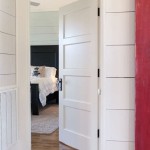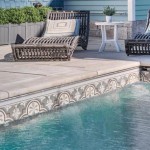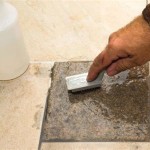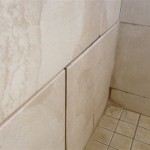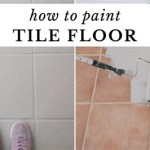Do I Need Backer Board for Wall Tile?
When embarking on a wall tiling project, the question of whether backer board is necessary arises. Understanding the purpose and benefits of backer board can help you make an informed decision about your tiling system.
Backer board is a moisture-resistant material used as a substrate for tile installation. It provides a stable, flat surface for tiles to adhere to and helps prevent cracking or movement, which can lead to grout failure and tile breakage.
Advantages of Using Backer Board
- Moisture Resistance: Backer board protects the wall from moisture penetration, preventing mold, mildew, and water damage to the substrate.
- Enhanced Adhesion: The porous surface of backer board allows thin-set mortar to bond more effectively, ensuring a strong bond between the tile and the wall.
- Stability: Backer board provides a solid foundation for tiles, preventing movement and cracking caused by changes in temperature or moisture levels.
- Leveling Surface: Backer board can be used to level uneven walls, creating a smooth and flat surface for tile installation.
When Backer Board Is Essential
Backer board is generally recommended for the following applications:
- Exterior Walls: Outdoor walls are exposed to moisture and temperature fluctuations, making backer board essential for protecting the substrate and ensuring tile longevity.
- Wet Areas: Bathrooms, showers, and kitchens experience high levels of moisture, necessitating backer board to prevent water damage and mold growth. li>Uneven Walls: Walls with significant imperfections or uneven surfaces benefit from the leveling capabilities of backer board.
- Certain Tile Types: Some tile materials, such as natural stone or large-format tiles, require a rigid and moisture-resistant substrate like backer board.
When Backer Board May Not Be Necessary
In certain situations, backer board may not be necessary:
- Interior Dry Walls: In dry interior spaces, such as living rooms or bedrooms, the drywall substrate may be sufficient for tile installation without the need for additional moisture protection.
- Small Tiles: Small-format tiles weigh less and have a lower risk of cracking, making backer board less essential.
- Short-Term Installations: Temporary or short-term tile installations may not require the added protection and longevity provided by backer board.
Conclusion
Whether you need backer board for wall tile depends on the specific requirements of your project. By considering the potential benefits and limitations of backer board, you can make an informed decision that ensures the durability, longevity, and aesthetic appeal of your tiled surface.

Tile Backerboard Material Options Fine Homebuilding

Busting The Myths Of Shower Tile Backer Board Pro Advice

Tile Backer Board Breakdown Which One Is Best For Showers Diytileguy

How To Install Cement Board For Tile Projects Diy Family Handyman

Tile Backer Board Benefits Uses Insulation

What Lies Beneath Tsj

Tile Backer Board Installation Key Steps For A Quality Armchair Builder Blog Build Renovate Repair Your Own Home Save Money As An Owner

Tile Installation Backer Board Around A Bathtub Family Handyman

Benefits Of Tile Backer Boards In A Wetroom Ccl Wetrooms

What You Need To Know About Tile Board Canadian Home Style
Related Posts

